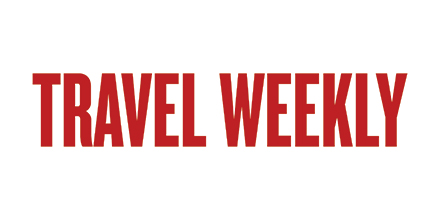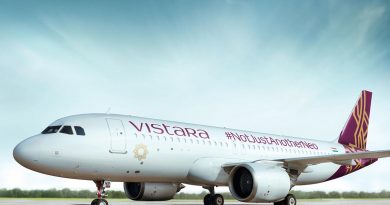Will it Play? Iceland's new budget airline launches
It has a familiar ring: An Iceland-based airline will employ an ultralow-cost carrier model and offer Europe flights to Americans with a stop in Reykjavik, starting with two East Coast gateways.
But in contrast to its failed discount predecessor Wow Air, the new startup airline Play is promising to exercise a disciplined growth strategy as it works to achieve staying power in the competitive transatlantic marketplace.
“We are not really in love with how big the company gets. We want just to have an efficient company,” Play CEO Birgir Jonsson said.
Play launched with service from Reykjavik to London Stansted in June. By the end of this month it will be flying at least weekly to 16 destinations in Great Britain, Ireland and continental Europe, Cirium flight schedule data shows, using a small fleet of narrowbody Airbus A321neo planes.
The carrier’s U.S. launch is set for Baltimore on April 20, with Boston service to follow on May 11. By then, Play plans to offer connections via Reykjavik to 21 European destinations.
In particular, Play’s schedule will be optimized for fast connections from Baltimore and Boston to 10 of those locales: London, Berlin, Brussels, Copenhagen, Dublin and Paris plus Gothenburg, Sweden; Stuttgart, Germany; and the Norwegian cities of Stavanger and Trondheim.
The carrier is operating under an ultralow-cost (ULCC) model, offering a single cabin class and low base fares and charging extra for carry-on and checked bags as well as advance seat assignments, food and beverages and other ancillary items.
Its primary competition is Icelandair, which ferries passengers via Reykjavik between 11 North American destinations and 23 European airports. But Play’s business model more closely resembles that of Wow, an Icelandic ULCC that also selected Baltimore and Boston as its first two U.S. markets.
That was in 2015, and by the summer of 2018, Wow had expanded to 13 U.S. destinations, each offering flights to Reykjavik and from there on to Europe. Less than a year later, even as the global airline industry was achieving record passenger numbers, Wow collapsed.
Jonsson, who was Wow’s COO for 14 months between 2014 and 2015, said lessons from that failure haven’t been lost on him or the other former Wow executives behind Play. The carrier expects to grow more slowly in the U.S. market than Wow did, with plans calling for its total number of North American stations to still be less than 10 by 2025.
Wow’s demise was accelerated by the decision of its owner, Skuli Mogensen, to invest in expensive widebody aircraft for service to markets beyond Europe, including Tel Aviv and Delhi. Jonsson said Play, which is publicly traded on the Nasdaq Iceland stock exchange, will make no such risky forays.
“We put tremendous emphasis on our decision-making process and strategy,” he said. “That is a fact that we have to live with, because we are a listed company.”
The carrier’s prospects, he said, are also strengthened by healthy startup capital of approximately $90 million as well as by favorable aircraft leasing terms, which it was able to obtain due to the impact the Covid-19 pandemic has had on the commercial aircraft market.
John Strickland, director of London-based JLS Consulting, said that for those reasons and more, he believes Play has an opportunity to stick around.
“If they grow at a modest pace, keep with one aircraft type, focus on costs and make use of digital technology in terms of efficiencies of running a business and communicating with customers, then I think they have a good chance of succeeding,” he said.
Strickland also touted Play’s use of the A321neo, which offers solid economics in terms of cost per available seat, while also easing the carrier’s burden relative to widebodies in terms of the number of tickets it must sell to make flights profitable.
Not all analysts are so bullish.
“If you define success as breaking even, yes, I think they can succeed,” said Judson Rollins of Amsterdam-based Propel Revenue Solutions. “If you define success by long-sustained profitability, I have my doubts.”
Rollins said that Play is challenged by starting up while international air travel is constrained by the pandemic and pandemic-related regulations and restrictions. Beyond that, he doesn’t think the carrier will be able to keep costs substantially below Icelandair — a major pitfall, since Play intends to sell tickets for less than its legacy competitor.
Rollins said that a best-case scenario for Play is to steer clear of too much route overlap with Icelandair in order to avoid a sharp competitive response. Germany’s Condor, he added, has successfully taken that approach with Lufthansa.
“As soon as they start taking share from Icelandair, Icelandair is going to drop the hammer,” Rollins said. In addition to Reykjavik, seven of Play’s 21 other announced European airport stations have Icelandair service. Icelandair also serves Boston. It doesn’t fly to Baltimore but does serve nearby Washington Dulles.
Jonsson, though said that he believes Play will be able to capture its fair share of transatlantic marketplace as long it keeps ticket prices low.
“I don’t spend my days looking at the Icelandair website,” he said.
Source: Read Full Article



